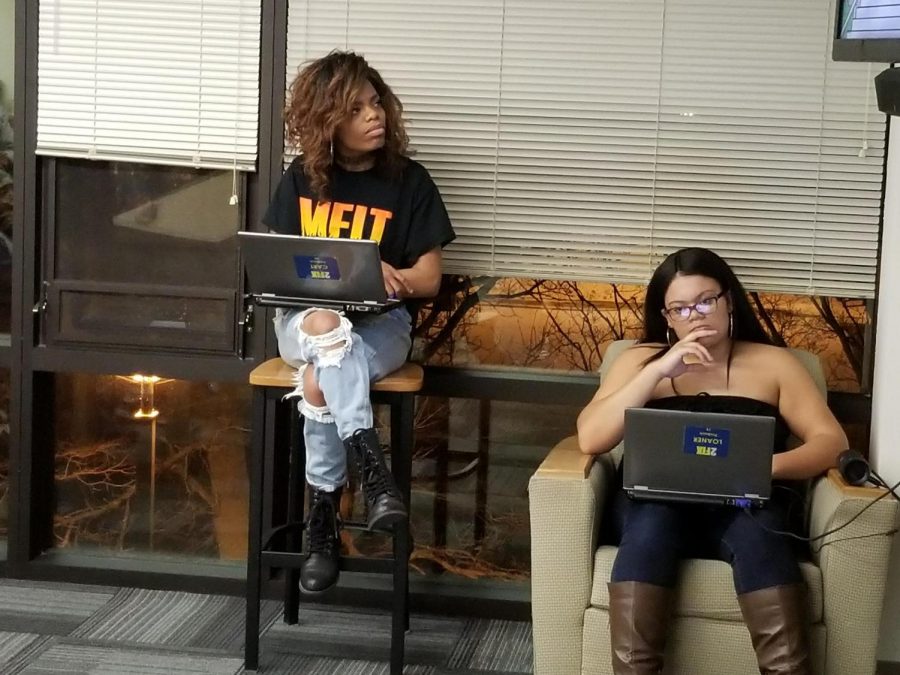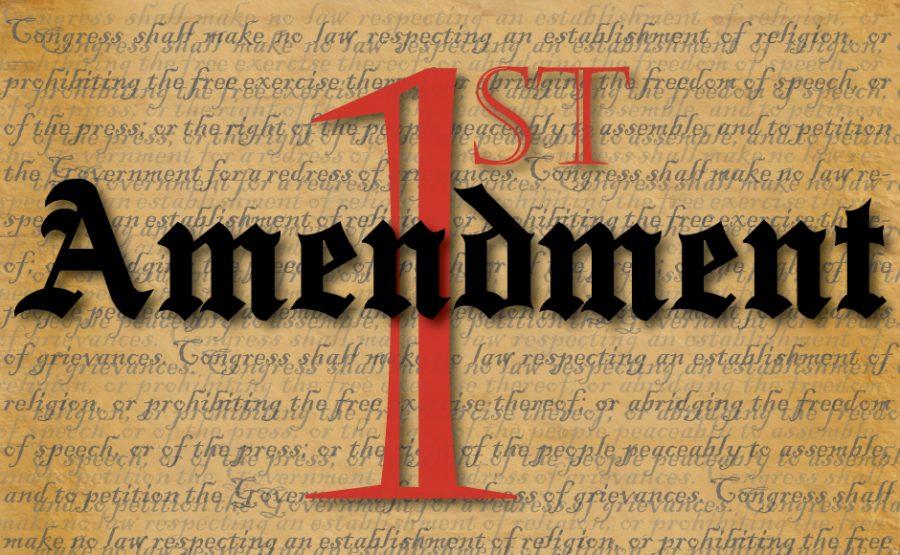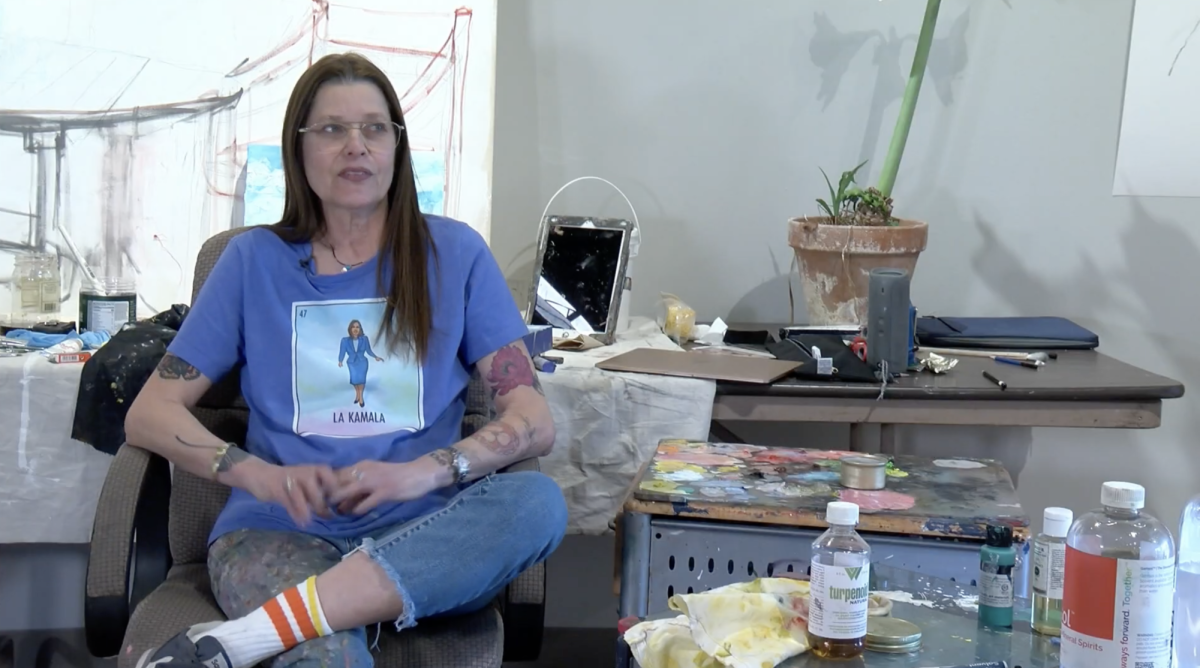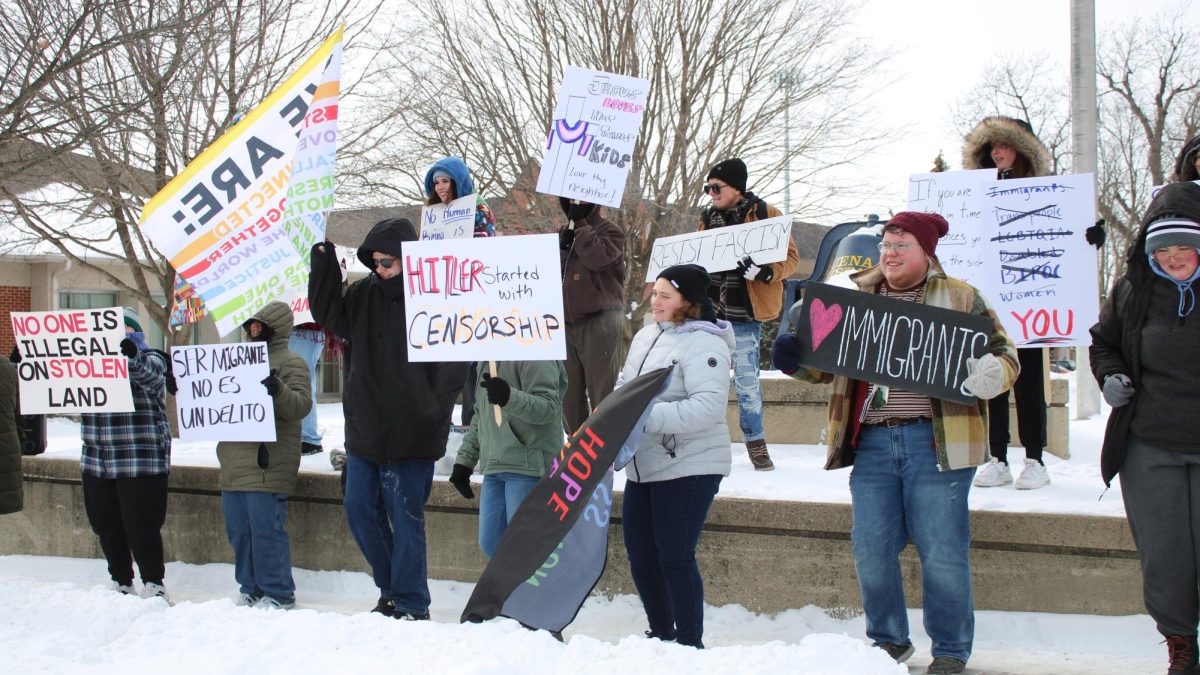MELT Couch Conversation: “Black Culture” Misconceptions
February 23, 2018
On February 13, Multicultural Engagement Leadership Team (MELT) and the Black Student Union (BSU) hosted a “couch conversation” in the skybox of Pierce-White dormitory hall as part of BSU Week.
The BSU partnered with MELT to discuss misconceptions and ask questions about black culture.
President of the BSU Alyssa Parker and junior Abby Ross, led the discussion with videos showing themes of black culture misconceptions, then posing questions for the audience to answer.
The conversation emphasized how unconscious bias influences misinterpretations about black culture. The media has a large and powerful impact on such biases, according to Parker.
Parker and Ross say many individuals are unaware of biases they hold and hope they can solve that by giving people an opportunity to change their mindset. In their opinion, if a person is given the opportunity to change, they are more likely to do so.
The conversation seemed to focus heavily on negative stereotypes about black people. According to the presenters, black men have been stigmatized as threatening, and black women as angry, loud, and unable to please. Freshman Malik Campbell says the couch conversation was informative and helpful.
“I felt like it was very informing to the people that don’t know black stereotypes and what actually makes us angry, and we’d rather have you ask than assume,” said Campbell.
The presenters also shared how popular terms can become stigmatized and spread unconscious bias. “Ghetto” and “ratchet” are words used frequently to describe black women, and black men have been referred to as “hood.”
Parker and Ross highlighted that today, people are attempting to change these misconceptions, and say that cultural changes are happening showing black women striving to achieve in places where they weren’t present before.
The presenters offer some advice for preventing unconscious bias and say individuals can stop watching media that portrays these stereotypes. They encouraged the audience get to know a person of another race, and ask them questions.
“If you want to approach a black woman, but you are uncomfortable, you should feel like you can come to these people and ask them questions,” said Parker.
From this conversation, Parker and Ross stressed the idea that black people may seem as if they are angry when they are educating others about black culture, but actually want to have a conversation about it and reach an understanding with others on the topic.
Parker says spreading awareness about black culture is why the BSU held the BSU Week February 12-16, so BVU students can being to ask questions of their peers.








